Thousands of African workers kept in appalling conditions
Hoping to escape the war, death and destitution rampant in their home countries, thousands of African workers embark every year on a grueling journey to the affluent Persian Gulf countries looking for employment.
The more fortunate ones will end up doing backbreaking manual labor earning a pittance, barely enough to make ends meet.
Should they be unlucky, a fate worse than death awaits them, as the thousands of Ethiopian workers stranded in Saudi Arabia in the midst of the COVID-19 pandemic can attest.
The Kingdom of Saudi Arabia, one of the wealthiest countries in the world, has absolutely no excuse for its treatment of the Ethiopians, nor the terrible conditions they are forced to live under.
Far from the inquisitive public eye, the Saudis have been keeping thousands of African workers in squalid places under deplorable conditions. Given the Saudis' mistreatment of African labor, Black Lives seem to be that last issue to matter in the Saudi kingdom.
Inhumane living conditions
A shocking expose was published by The Sunday Telegraph in August. It disclosed that thousands of African workers were locked in detention centers across the country under inhumane, unsanitary conditions. With their smuggled mobile phones, some of the migrants gave the newspaper a snapshot of life - or to be blunt, death - in these hellish centers.
According to Adam Coogle of Human Rights Watch, "Photos emerging from detention centers in southern Saudi Arabia show that authorities there are subjecting Horn of Africa migrants to squalid, crowded, and dehumanizing conditions with no regard for their safety or dignity.”
“Lots of people gone to Saudi Arabia know just how dreadful the treatment of émigrés and refugees and actual workers are and this thing about the Ethiopians is just consistent with all the terrible things they do to third-country nationals.”
William Spring, Peace Campaigner and Political Commentator
Calls of despair
Some of these migrant workers shared their harrowing experiences with The Sunday Telegraph.
“My only crime is leaving my country in search of a better life. But they beat us with whips and electric cords as if we were murderers.”
“It’s hell in here. We are treated like animals and beaten every day.”
“If I see that there is no escape, I will take my own life. Others have already.”
“We eat a tiny piece of bread in the day and rice in the evening. There’s almost no water, and the toilets are overflowing. It spills over to where we eat.”
“Plenty of inmates are suicidal or suffering from mental illnesses as a result of living this for five months.”
“Covid19? Who knows? There are a lot of diseases here. Everyone is sick here; everyone has something.”
“A young boy, about sixteen, managed to hang himself last month. The guards just throw the bodies out back as if it was trash.”
“We have been left to die here.”
According to William Spring, Peace Campaigner and Political Commentator, the Saudi regime, supposedly the custodians of Two Holy Mosques, is certainly not behaving in accordance to the precepts of Islam.
The Saudis behave like unreconstructed Nazis, full of hate, full of antagonism, full of vile and evil for people who are not able to protect themselves, to treat these Ethiopians in this particular way. There is no conscience; there is no sense of God.
William Spring, Peace Campaigner and Political Commentator
In a bid to control the COVID-19 pandemic, Riyadh took the migrant workers to overcrowded, squalid centers, reminiscent of camps in Libya, in which the migrant workers are treated like animals.
The Kingdom of Saudi Arabia, one of the wealthiest countries in the world, has absolutely no excuse for its treatment of the Ethiopians, nor the terrible conditions they are forced to live under.
Where are the Human Rights Groups?
Nadia Hardman of Human Rights Watch said, “We repeat our call on Saudi Arabia to immediately release the most vulnerable and improve the miserable conditions for the thousands that remain.”
Unfortunately, respect for human life is a completely alien concept in the Saudi mind. They do not respect human life; they respect - to a very limited degree - the lives of some Saudis but not the majority of the people.
When it comes to non-Saudis, they have no value. There is a German phrase which is something like "undervalued lives" and that is the Saudi belief towards all non-Saudis.
William Spring, Peace Campaigner and Political Commentator
Saudi Lives Matter more
Despite the exigent nature of social distancing in fighting the present pandemic, the Ethiopian refugees are packed like sardines. The al-Shumaisi center located near the holy city of Mecca is just one horrid case among many.
According to Ethiopia's Consul General in Jeddah Abdo Yassin, “Jeddah has over 53 prisons. Ethiopians are held in every one of them. If you take the one at al- Shumaisi, there are about 16,000 Ethiopians kept in the prison and the holding cells.”
How long has this been going on?
A large proportion of these impoverished workers have been in limbo since April, with many accounts of death by disease, heatstroke or suicide coming from these centers.
A leaked video clip shows rooms covered with filth from an overflowing toilet. With no help coming from the Saudi staff to fix the clogged toilet, the migrants have to eat and sleep next to the sewage.
From my experience of Saudi Arabia, the very idea of human rights is alien to the Saudi mentality, certainly from the point of view of Crown Prince MBS there is no concept of human rights, it does just not exist.
They don’t recognize any of the international conventions, they don’t recognize any of the obligations of their religion, and they don’t recognize any of the normal requirements of civilized life.”
William Spring, Peace Campaigner and Political Commentator
Saudi roots in slavery
The roots of racism in Saudi Arabia run deep with black migrant workers enjoying very few rights, if any, and treated inhumanely as if they were slaves. Many complain of exploitation, sexual and racial abuse from their Saudi employers.
The oil-rich kingdom has long been exploiting workers coming from poor African countries. In June 2019, around 6.6 million foreign workers made up about 20 per cent of Saudi Arabia's population, many of them holding low-paid, physically tough jobs.
“The general massive Africans the Saudis were lacking any respect for and this is gone back many years. It's not just a new phenomenon.
The Saudis and the Arabs in that part of the world were very much involved in African slave trade and from most times their lack of respect for the Africans continued.
When I first went to Saudi Arabia, the slave market in Jeddah had only just been closed. I have photographs of it. And this is only closed as a technicality; it's not really been closed. Many of them, young ladies and people working for the Saudis in homes, are effectively slave labor.”
William Spring, Peace Campaigner and Political Commentator
Far from the inquisitive public eye, the Saudis have been keeping thousands of African workers in squalid places under deplorable conditions. Given the Saudis' mistreatment of African labor, Black Lives seem to be that last issue to matter in the Saudi kingdom.
Hundreds protest US carrier arrival in Crete ahead of West Asia deployment
Iran warns Trump against decisions based on false information
Iran embassy rejects 'fabricated' French reports on domestic affairs
Trump’s military buildup against Iran on Netanyahu’s behalf is a gambit doomed to fail
Iran dismisses US 'big lies' on nuclear, missile programs
CIA‑founded NGO admits deploying Starlink satellites for Iran riots
VIDEO | French comedian targeted by Rothschild and Epstein for his shows on Palestine
Iranian commanders warn US not to mistake it for other nations


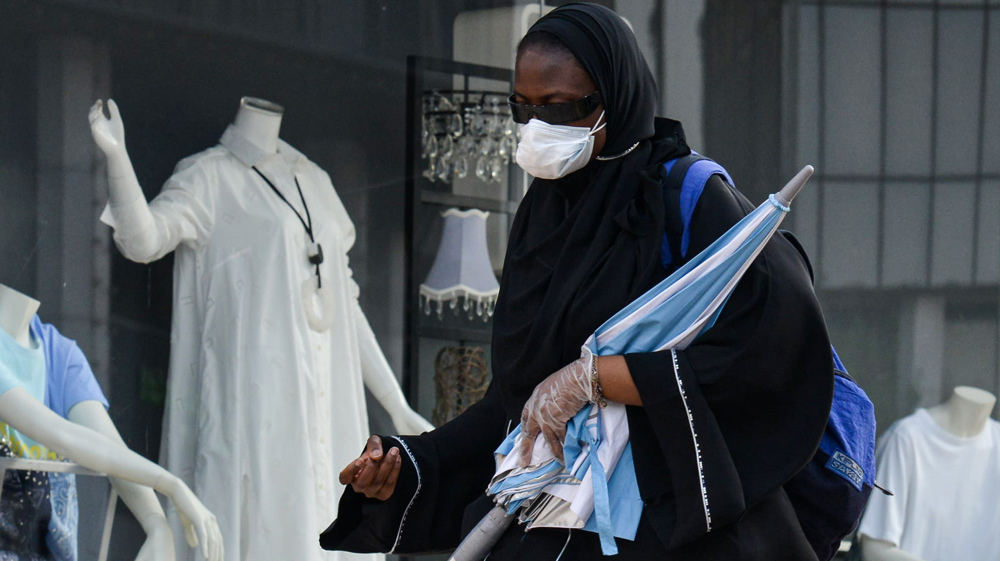





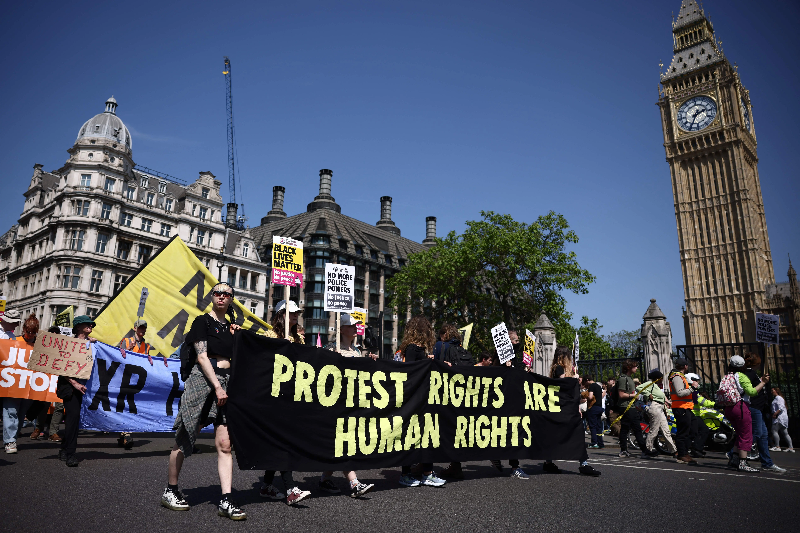
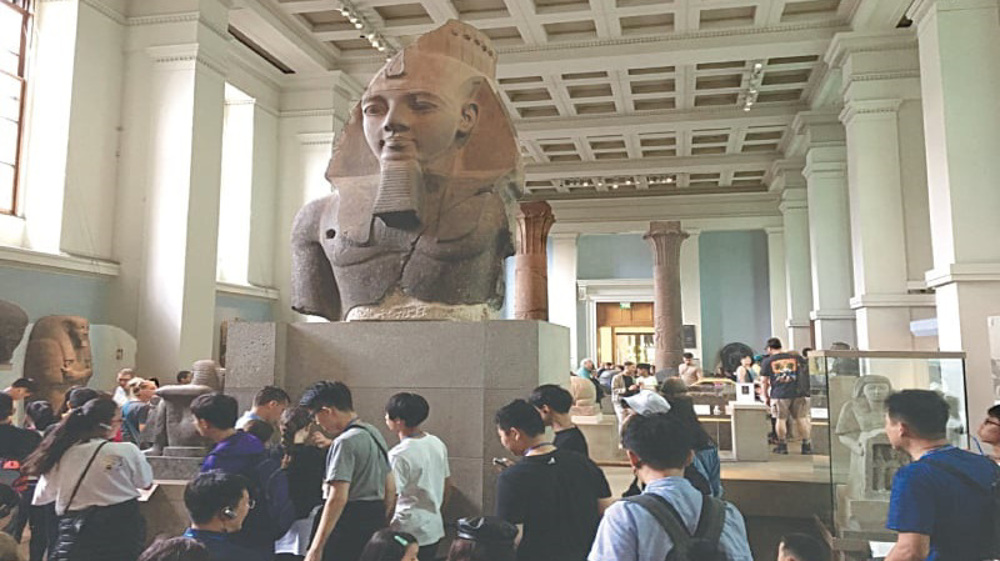
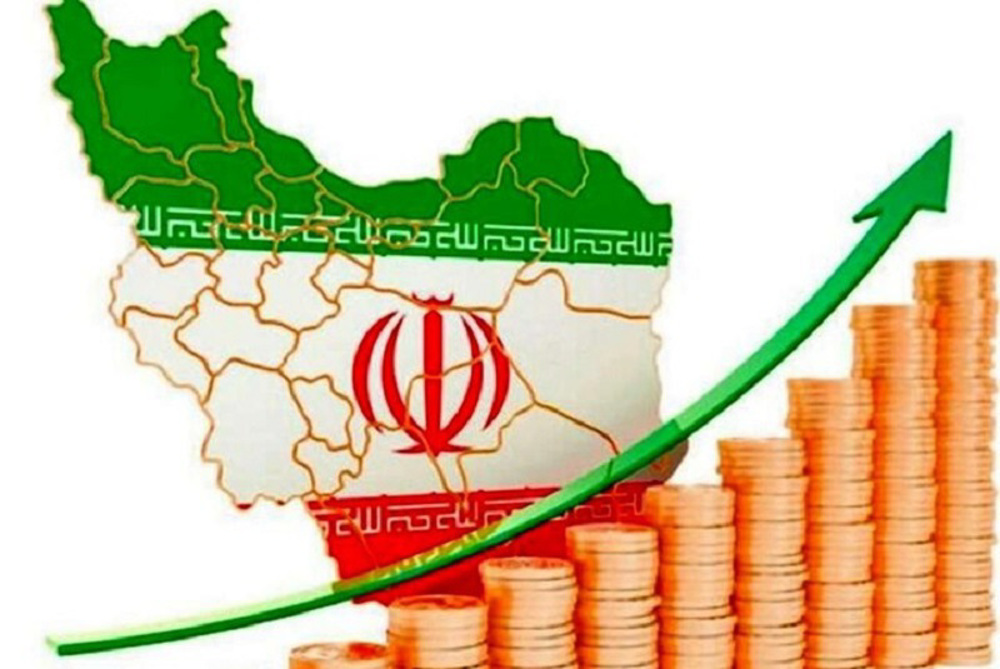



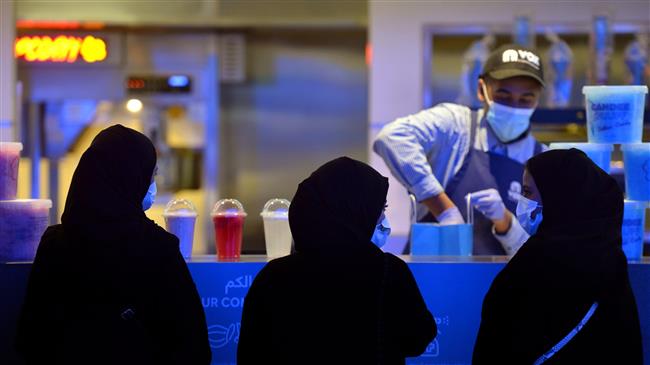
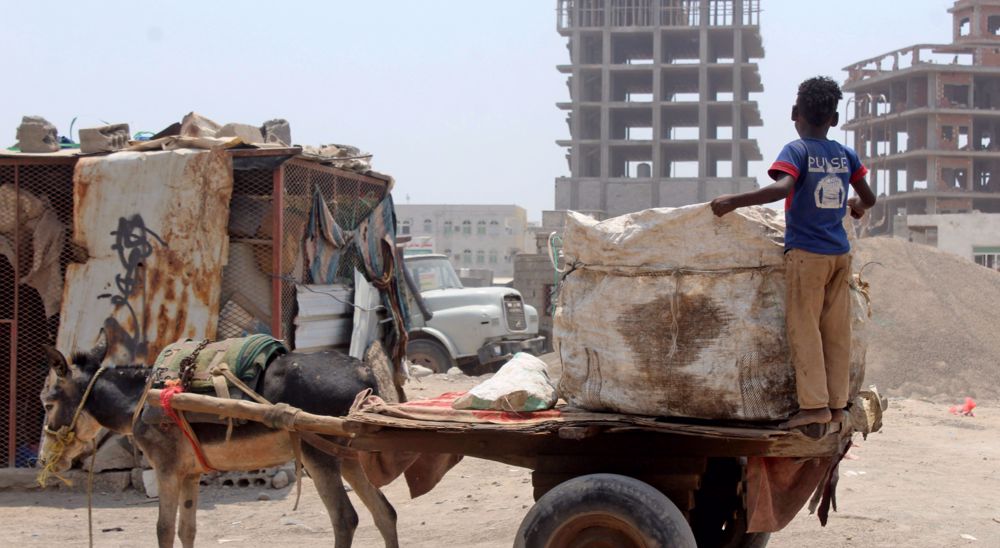
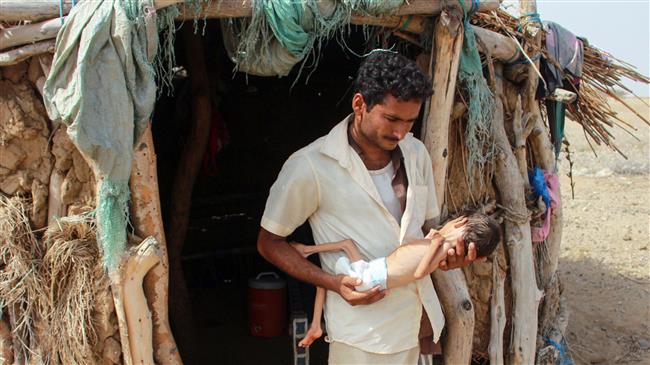
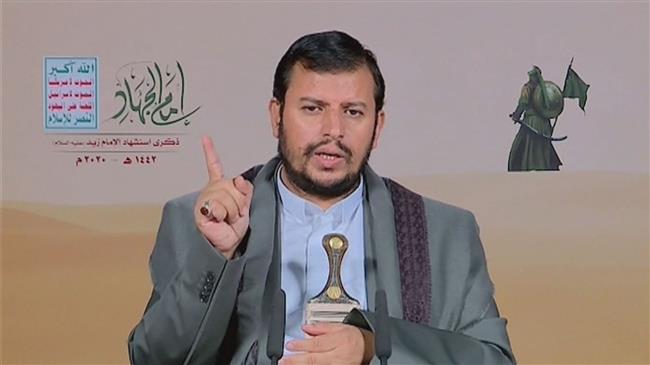
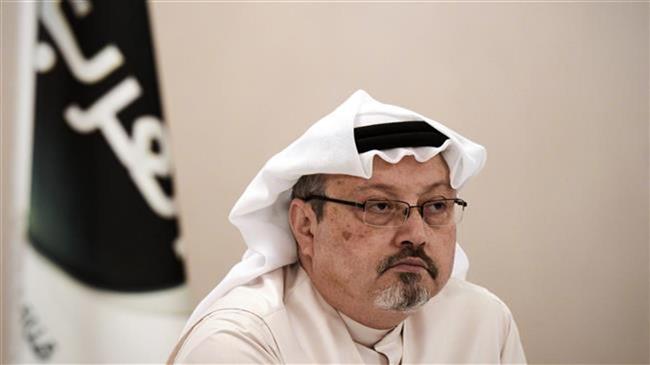
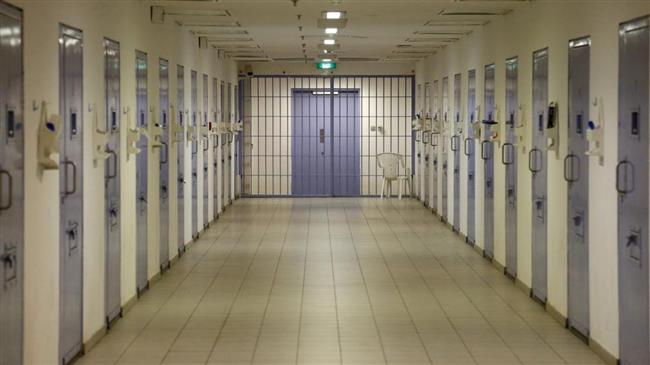
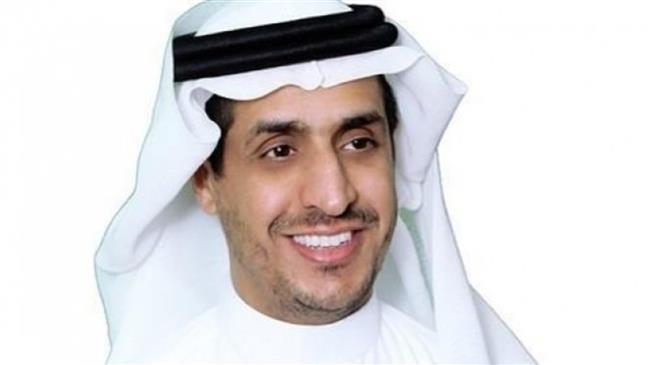


 This makes it easy to access the Press TV website
This makes it easy to access the Press TV website